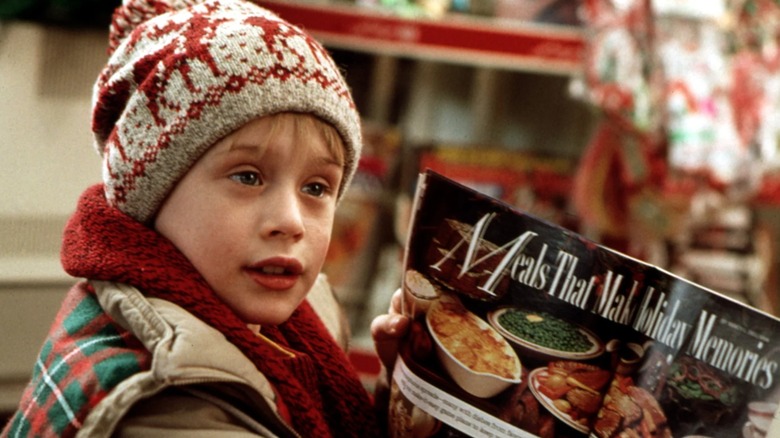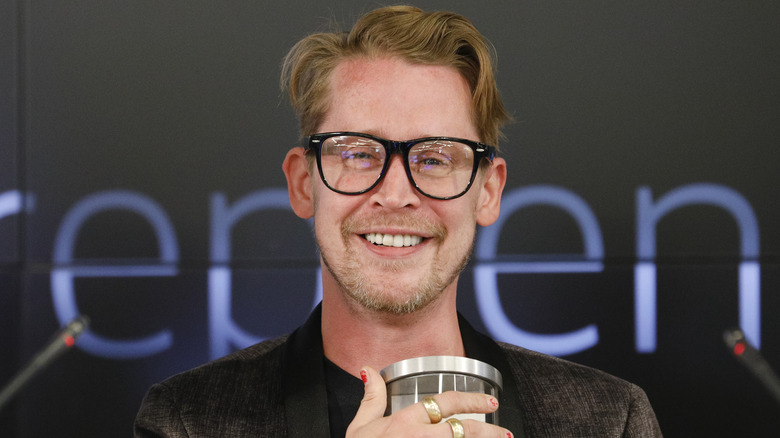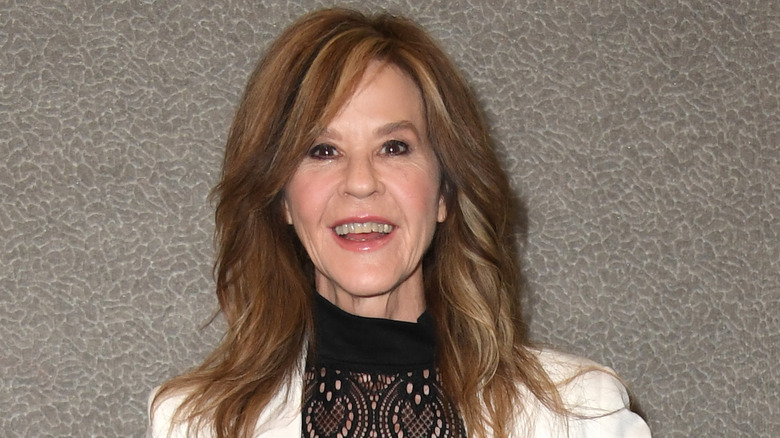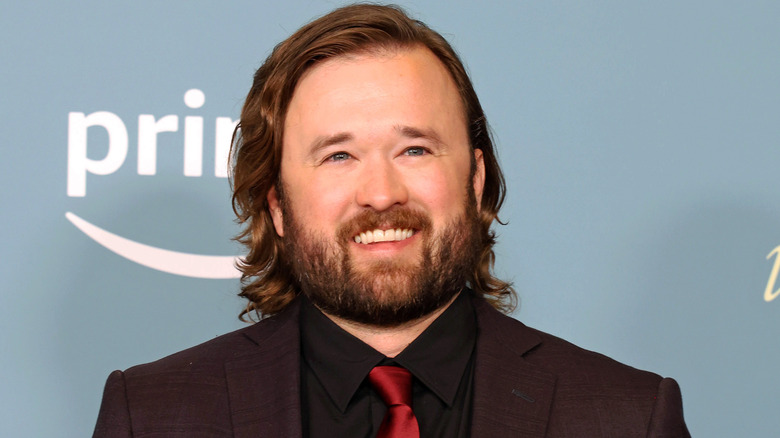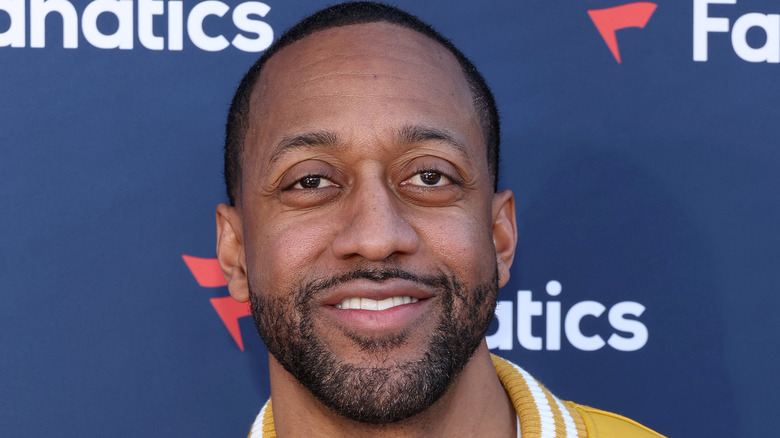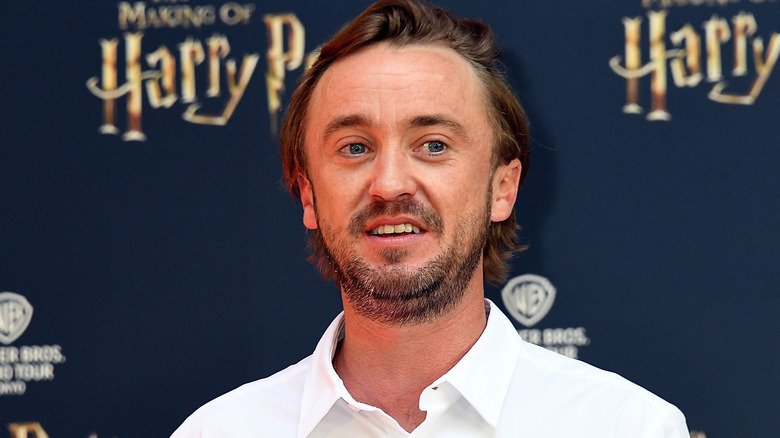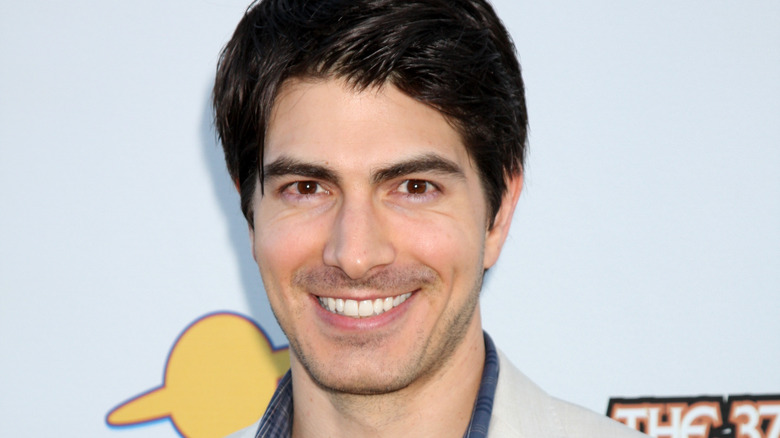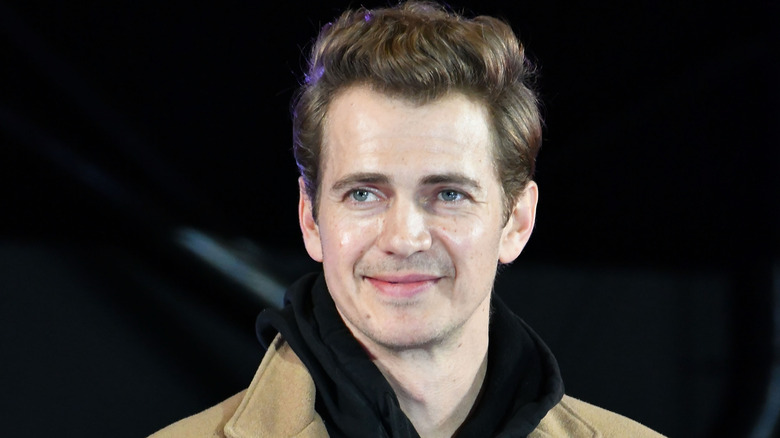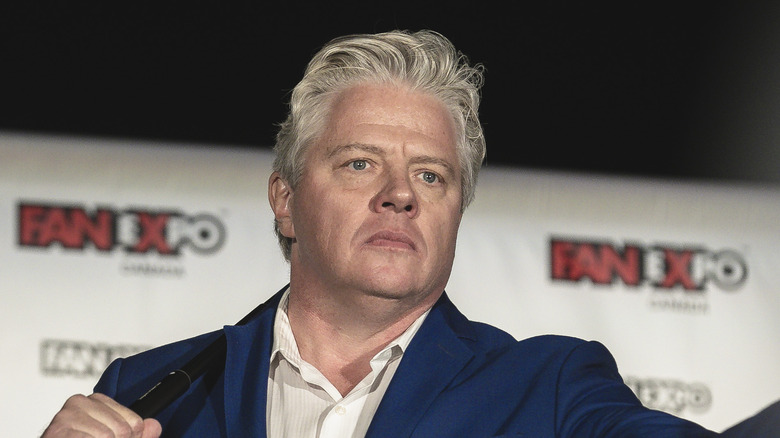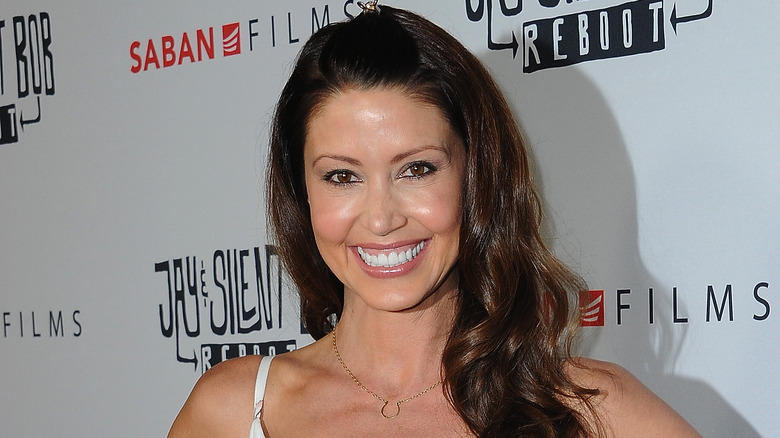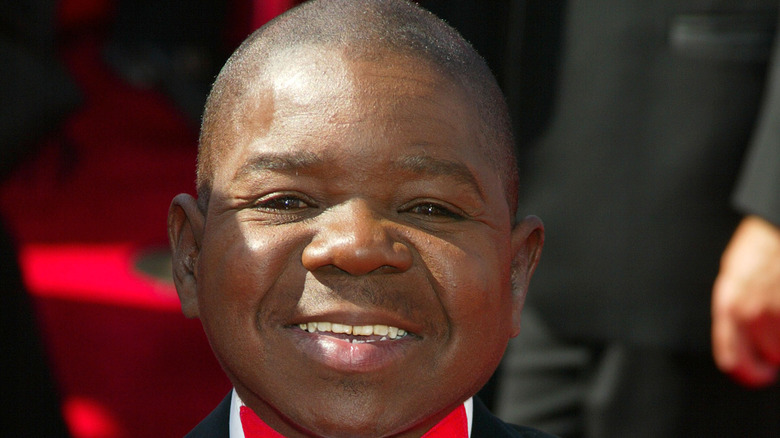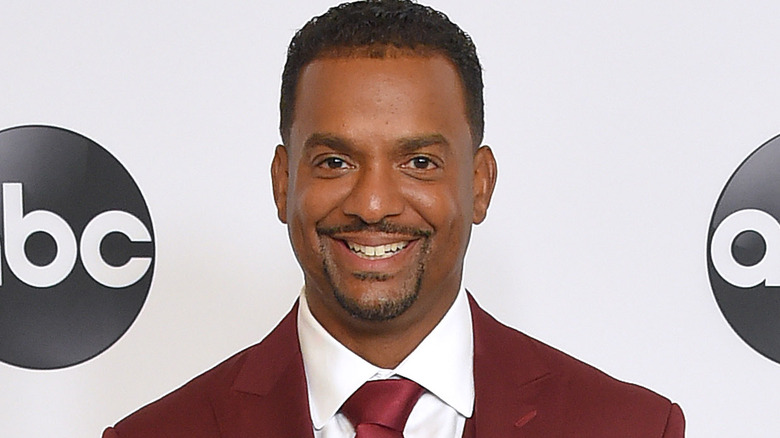Actors Who Struggled For Work Because Their Famous Role Was Too Iconic
For any actor working their way up in the industry, the goal has always been to land a breakout role. However, some unlucky actors have discovered that there can be a dark side to this pursuit. Sometimes, actors capture lightning in a bottle with a seminal role early in their career, and casting directors and fans can only envision them as that one character.
This frequently results in actors being typecast and only being offered roles that are slightly similar to their most famous parts. As the original show or movie slowly fades from the public consciousness, the actor sadly becomes forgotten. Those performers who've had the misfortune of experiencing this fate have navigated the path of their careers in different but equally fascinating ways.
Here is a group of actors who struggled for work after an iconic role, along with their current perspectives on the situation and why they ended up in the predicament in the first place.
Macaulay Culkin
Macaulay Culkin's story encapsulates the classic tale of a child star, complete with its usual ups and downs. Currently, Culkin is gradually making a comeback, showcasing his talents in well-received supporting roles in "American Horror Story: Double Feature" and "The Righteous Gemstones." However, before this resurgence, his journey was marked by a complex history that harmed his career, all stemming from his unforgettable role as Kevin McCallister in the beloved 1990 film "Home Alone."
"Home Alone" needs no introduction to most, being one of the best Christmas movies of the past three decades. However, contrary to popular belief, it wasn't Culkin's first foray into film. He had appeared in smaller roles in the late 1980s, but it was his standout performance in "Uncle Buck" that truly kickstarted his career. His portrayal impressed John Hughes so much that Hughes thought of "Home Alone" specifically for Culkin.
Culkin quickly rose to fame, though not without challenges. His career took off when he was just 10 years old, and his father, Kit Culkin, held considerable sway over his decisions. Reports later emerged of Kit's abusive behavior. When Macaulay finally freed himself from his father's control, he took a lengthy break from acting. Upon returning as an adult, his work generated little interest. Nonetheless, Culkin has emphasized in several interviews that he now finds more joy in his life compared to his time as a child star.
If you or someone you know may be the victim of child abuse, please contact the Childhelp National Child Abuse Hotline at 1-800-4-A-Child (1-800-422-4453) or contact their live chat services.
Linda Blair
By the time Linda Blair landed her role in "The Exorcist," she had already appeared in numerous commercials. Even though she was just 12 years old, she was already accustomed to being in front of cameras. She ended up being pushed to unimaginable limits by the legendary late director William Friedkin. Despite these challenges, they ultimately succeeded in creating a classic.
The experience became a mixed bag of blessings and challenges for Blair. The movie went on to set box office records and spawn a sequel, and Blair earned several major awards and nominations. However, soon enough, she became the innocent target of a backlash campaign against the movie's religious commentary. Additionally, she had to contend with casting directors who viewed her exclusively as a victim, much like her role in "The Exorcist."
For a brief period, Blair was able to secure roles in successful movies, most notably in "Sweet Hostage" alongside Martin Sheen and in "Victory at Entebbe" with Anthony Hopkins. However, all of these roles cast Blair as some form of a victim. This trend unraveled when she appeared in the poorly-received sequel to "The Exorcist." Over time, Blair faded from being a major Hollywood star, though she's continued to work steadily in both TV and film in the decades since.
Haley Joel Osment
Haley Joel Osment was already a star before setting the stage for one of the greatest movie plot twists of all time in "The Sixth Sense." However, the film propelled him to a different stratosphere of fame. Not only did Osment deliver some of the most memorable lines in the movie, but he also received nominations for various awards, including an Academy Award nomination alongside Tom Cruise and Michael Caine.
During the early 2000s, he was widely regarded as one of the best acting talents, not only among his fellow child actors but in the entire industry. Osment appeared capable of breaking free from being typecast in a particular role. He starred in some of the biggest movies, collaborating with highly talented directors who sought to showcase his versatile skill set. The difficulty Osment encountered seemed to arise from the audience's reluctance to witness his transition from child to adult roles. He chose to take a hiatus from acting, dedicating his time to college studies away from the public eye. When he eventually returned to the industry, he focused more on comedic roles — a genre that's allowed him to showcase his strongest skill set.
Jaleel White
In the 1980s, Jaleel White took on several roles that fell short of their potential. He had a part in "The Cosby Show" that was eventually written out, and he played a leading role in the short-lived series "Charlie and Company." However, everything changed when he landed a role in "Family Matters." His portrayal of Steve Urkel gained immense popularity, and he even appeared in commercials and on cereal boxes. White was at the peak of success.
This list primarily features child actors because it often proves beneficial in the long run if audiences are familiar with an actor before they land a major role. Unfortunately, this advantage isn't usually available for child actors. After "Family Matters" concluded, White faced challenges in securing new roles. The shows he did manage to get, like "Grown Ups," didn't make it past the first season. His famous character seemed to follow him relentlessly, being used to even describe a controversy surrounding his appearance on "Dancing With The Stars" when he was much older.
Currently, White is striving to develop his own shows with major studios and bring back "Family Matters." Nowadays, he's often seen expressing valid concerns about the issues within his industry. He emphasizes that he can't truly showcase his talents without the opportunity to collaborate with the best writers.
Tom Felton
The "Harry Potter" franchise elevated Tom Felton's recognition to a household level, but it also brought some limitations. Over a decade spent within the franchise, his schedule became tightly packed, limiting his involvement in other movie or TV projects.
Consequently, Felton found himself being typecast for roles akin to his Draco Malfoy character, as seen in movies like "Rise of the Planet of the Apes." Combined with some unfavorable outcomes at the box office and poor reviews for several films he starred in, this consistent typecasting took a toll. Felton has also said that he had to adjust to auditioning as an adult instead of as a child since he spent so much of his youth in one single franchise. "Going in there as a 20-year-old, especially in Los Angeles, the auditions are far more frequent and cut-throat," the actor told I News (via Edinburgh Live). "It's a lesson — not necessarily in brutality, but in acceptance."
Felton has continued to find work in recent years, appearing in films like "Save the Cinema" and TV shows like "The Flash" and "Origin." But there's no doubt that securing roles in Hollywood required more tenacity and struggle.
Brandon Routh
For fans who've caught even a fleeting glimpse of him, it's pretty clear just how much Brandon Routh resembles Christopher Reeve. It seemed destined that Routh would someday don the Superman mantle in his own movie. Routh eventually did land the role of Clark Kent in "Superman Returns," but unfortunately, the movie failed to capture the public's interest. It fell short of expectations at the box office, and efforts to line up a creative team for a sequel proved fruitless. It soon became evident that Routh would stand as the sole live-action Superman to have portrayed the character in just one film.
"Superman Returns" hurt Routh's acting career a lot, and losing the role triggered a crisis of confidence. To rub salt in the wound, he struggled to secure other roles to take his mind off of the disappointment. He faced two major setbacks during this period: His scenes were entirely cut from "The Informers," and another film titled "Without Remorse" was trapped in development limbo. Fortunately, Routh's journey with the Superman character didn't end on a sour note. He was given the chance to resurrect his version later in The CW's Arrowverse, in which he also played Ray Palmer for years.
Hayden Christensen
Hayden Christensen is best known for his role in the "Star Wars" prequels, though his portrayal of Anakin Skywalker, like many aspects of the movies, proved divisive. Even today, Christensen remains the subject of jokes involving sand. Before debuting in the role, though, he was already highly regarded as an actor, and he had to compete with notable names like Leonardo DiCaprio and Heath Ledger to secure the part of Anakin.
Christensen managed to avoid common pitfalls. He had already gained some fame before his breakthrough, he hadn't started his career as a child actor, and he featured in a number of successful releases. So what led to his downfall? The answer lies in the reviews. His acting in "Attack of the Clones" in particular was criticized, labeling him as subpar. Gradually, he faded from the screen and took a four-year hiatus.
Christensen has since revealed his reason for the break. "I felt like I had this great thing in 'Star Wars' that provided all these opportunities and gave me a career, but it all kind of felt a little too handed to me," the actor said in an interview with Yahoo (via CinemaBlend). "I didn't want to go through life feeling like I was just riding a wave." In the years since, Christensen's "Star Wars" performance has been reevaluated, with more blame put on George Lucas' writing and many believing that the films have been underrated. He's even had the opportunity to reprise his role in multiple "Star Wars" Disney+ series.
Thomas Wilson
"Back to the Future" is a cornerstone of cinema culture, and the character of Biff, played by Thomas F. Wilson, is a pivotal piece of its enduring impact. A successful teen movie hinges on two crucial elements: a charismatic protagonist and a detestable antagonist. "Back to the Future" certainly delivered on both fronts. Biff's presence left an indelible mark on the public psyche, to the extent that even in 2015, three decades after the original release, political commentators were using Biff to describe a bullying presidential candidate.
This popularity came at a cost. During the pinnacle of his fame, Wilson found himself consistently offered roles that echoed the bully archetype. However, in the later stages of his career, he revealed to The Hollywood Reporter that he turned down most offers to reprise similar roles. "I don't pay attention to what I don't do, I only pay attention to what I do," Wilson told the outlet. The character of Biff became so intrinsically tied to his identity, however, that even after 30 years, fans still approached him with questions, often about the intricacies of time travel.
Despite his rejection of Biff-like roles and the potential impact on his career, this decision eventually proved beneficial. In the present day, Wilson remains a busy actor, having appeared in modern films like "The Heat" and "The Informant."
Shannon Elizabeth
Shannon Elizabeth encountered challenges with her role in "American Pie" even before the film's release. The movie's creators cast her as an exchange student from the Czech Republic named Nadia. Much later, Elizabeth revealed her frustration with how the production team manipulated her accent in post-production and expressed dissatisfaction with her payment for the role.
Elizabeth never anticipated that her performance would be as adored as it ultimately became, partly because she felt her accent was mishandled. Regardless, Nadia became one of the highlights of the raunchy comedy. However, her payment wasn't exactly equal to the character's cultural impact. Speaking on the podcast Inside of You with Michael Rosenbaum, Elizabeth said that she was happy with the meager pay on "American Pie" because it was her big break. After that, though, she resolved to only accept roles that offered better compensation. "I walked away from a lot of offers," Elizabeth said. "My lawyer and my manager and agent, they all thought I was crazy. And I kept saying no."
Fortunately, Elizabeth did find success in films that were prepared to pay her properly, like "Scary Movie" and "Love Actually." She returned to reprise the character of Nadia for the sequel to "American Pie," and she's stayed active in the industry since.
Gary Coleman
Gary Coleman's case of severe typecasting is arguably one of the most extreme examples one could encounter. From his childhood, Coleman's life eerily aligned with his role as Arnold Jackson in "Diff'rent Strokes." He was raised as an adopted child, mirroring his character on the show, and he possessed a natural comedic charm that was evident in interviews and seamlessly translated to his role.
However, Coleman's personal life wasn't as idyllic as one might assume for someone who achieved fame and wealth at such a young age. Diagnosed with a rare kidney disease, he faced growth deficiency and a number of other serious health problems. When "Diff'rent Strokes" concluded, casting directors offered him mostly child roles, even as he grew older.
The stress during this phase of his career, combined with a number of financial issues, plunged Coleman into a dark period. He engaged in several public altercations and continued to suffer from major health problems. In 2010, Coleman passed away after a fall down the stairs at his home.
Alfonso Ribeiro
"The Fresh Prince of Bel-Air" catapulted Will Smith to stardom, establishing him as one of the most successful box office stars and acclaimed actors of his generation. However, the same trajectory didn't unfold for his co-star Alfonso Ribeiro, who portrayed the iconic character Carlton. Ribeiro openly acknowledges that the show transformed his life and he considers the cast and crew his family.
Paradoxically, Ribeiro now finds it difficult to revisit the show. "I have been typecasted to the point where it is almost impossible for people to see me doing something else," he said during an interview on Yahoo's BUILD Series. He admitted that he has trouble watching the show "because it creates a certain amount of pain." Even the fans who adore his work as Carlton can cause some mixed feelings, Ribeiro said. "It's a really interesting, weird world that I have to live in when people run up to me saying 'Carlton,' and the name creates pain, because it stopped me from doing what I originally loved, which was acting."
To break free from this typecasting, Ribeiro shifted his focus toward hosting, taking on roles in shows like "Dancing with the Stars" and "Catch 21." His aim was to reveal more facets of his personality to the audience. Ribeiro faced his predicament with a positive attitude, though the frustration of being typecast has clearly stayed with him.
